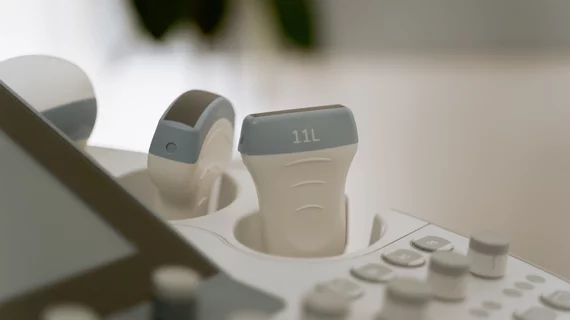GE HealthCare acquires AI ultrasound company
GE HealthCare has picked up Caption Health, an AI ultrasound company targeting early disease detection.
Financial terms of the deal were not disclosed in the announcement from GE HealthCare, though the company plans to use cash on hand to finance it. Caption Health, based in California, has raised more than $62 million through seven funding rounds, according to Crunchbase. The deal will fold Caption Health into GE HealthCare’s $3 billion ultrasound business, supporting the portfolio with AI-enabled imaging. GE HealthCare officially became a standalone entity in early January after GE split into three separate businesses––GE HealthCare, GE Vernova and GE Aerospace.
Caption Health uses AI to assist in its ultrasound examinations and detect disease such as heart failure at doctors’ offices, at home or alternate sites of care. According to GE HealthCare, heart ultrasounds are the primary examination to determine heart failure, which is the most common diagnosis in the U.S. for hospitalized patients older than 65. With heart disease and No. 1 cause of death in the United States, earlier detection could lead to earlier interventions.
“Guiding ultrasound users during examinations with the help of AI is of growing importance, especially as we reach a broader set of healthcare professionals,” GE HealthCare Ultrasound President and CEO Roland Rott said in a statement. “Caption Health’s AI applications help enable reliable, consistent ultrasound examinations to deliver more precise diagnoses, improved treatment decision-making, and ultimately improved patient outcomes. This tuck-in acquisition will help expand affordable access to ultrasound imaging to novice users and is aligned with a broader shift to precision care globally.”
Caption Health will continue to provide management and administrative services to affiliated medical services providers, referred to as Caption Care, as part of the acquisition. The Caption Health AI technology could be used by trained technicians to perform cardiac ultrasounds in alternate sites of care and potentially within patients’ homes in the future.
Caption Health also has a pipeline of AI software, including for the use of ultrasound in pulmonary applications.

